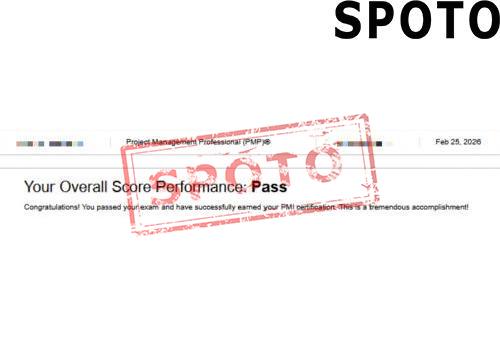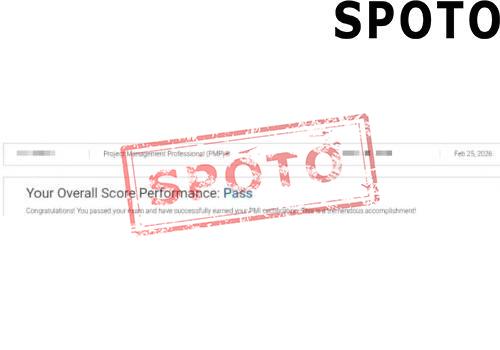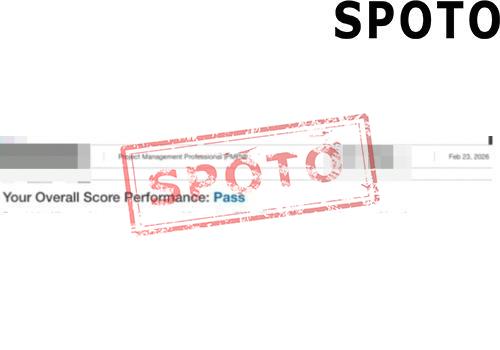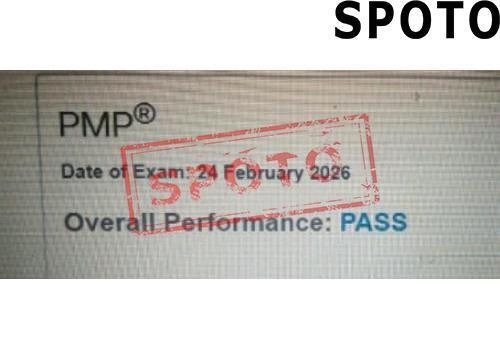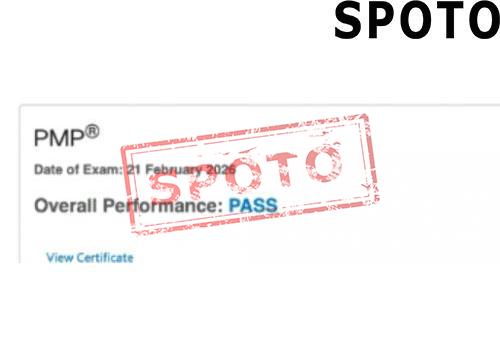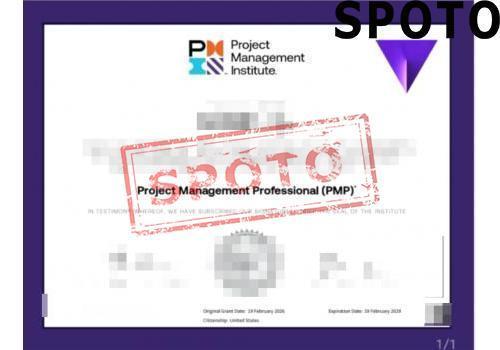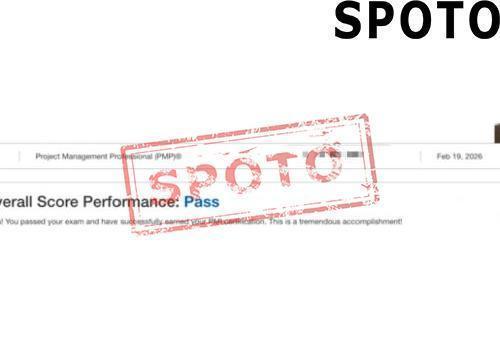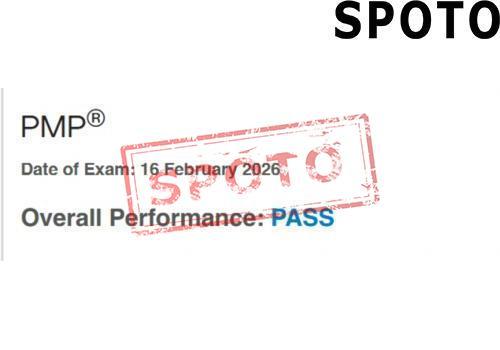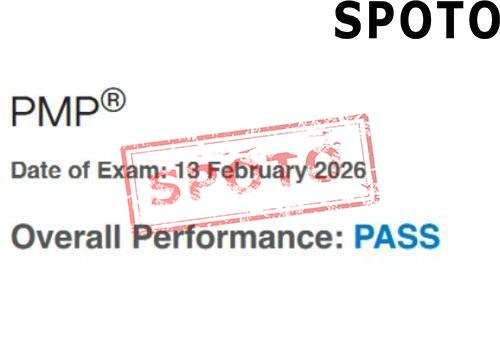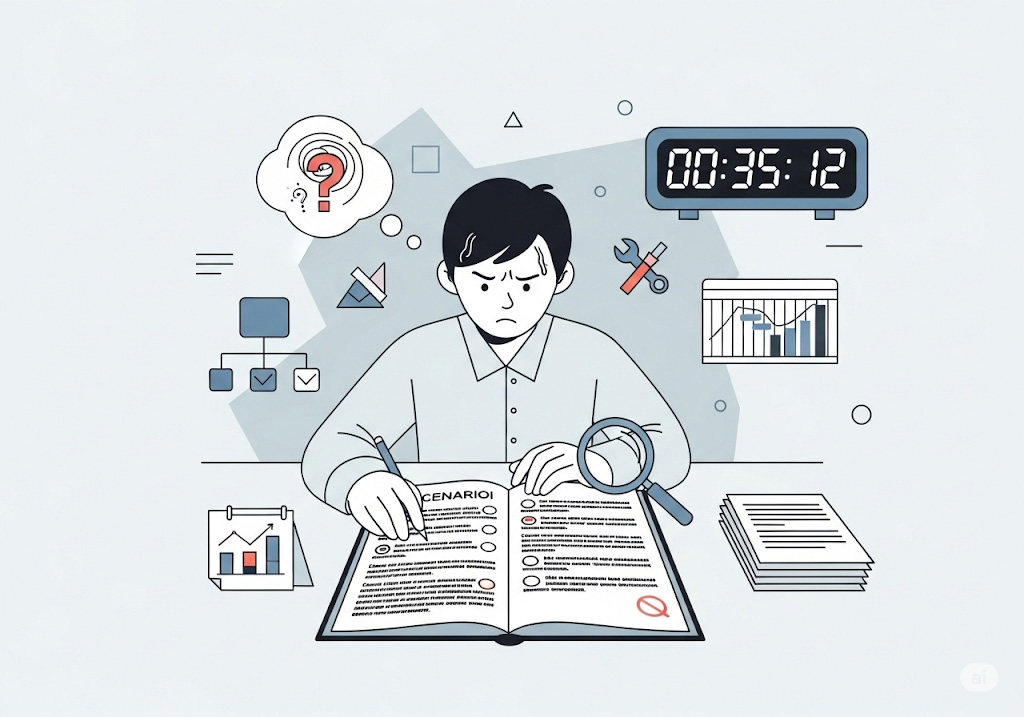
Table of Contents
The Project Management Professional (PMP)® certification, offered by the Project Management Institute (PMI)®, is widely recognized as the gold standard for project management professionals worldwide. As its reputation for prestige and value grows, so do the questions about its difficulty. For aspiring project managers, the primary concern is often not whether they can earn the credential, but rather, how hard is the PMP exam? The short and honest answer is that it is a rigorous, challenging test that stands apart from many other professional certifications. However, the difficulty is a deliberate feature, designed to protect the integrity and value of the credential itself. This report will provide a definitive, data-driven breakdown of what makes the exam so challenging, what it truly takes to pass, and why the effort is a worthwhile investment in a professional's career.
The PMP exam is widely considered one of the hardest professional certification exams due to its complex, scenario-based questions and rigorous time constraints.1 It tests a candidate’s ability to apply project management principles to real-world situations, rather than simply recalling memorized facts.1 With an unofficial failure rate estimated at 40-50% for first-time test-takers, success requires a strategic approach and dedicated preparation.4
To truly understand the PMP exam's difficulty, one must look beyond a simple pass-or-fail metric. It is a multi-faceted challenge that includes stringent eligibility requirements, a significant financial investment, and a unique test format designed to evaluate critical thinking and problem-solving skills. By addressing each of these components, this report will demystify the PMP and provide a clear roadmap for the certification journey.
Blog Claim: The PMP exam is a significant but surmountable challenge whose difficulty is a direct reflection of the certification's high value and global recognition.
Blog Claim: The PMP exam is a significant but surmountable challenge whose difficulty is a direct reflection of the certification's high value and global recognition.
Why Is the PMP Exam So Difficult?
The difficulty of the PMP exam is not arbitrary; it is a direct result of its structure, content, and the unique way it evaluates a candidate's abilities. Unlike knowledge-based exams that reward memorization, the PMP is a test of applied wisdom and strategic thinking.3 It is designed to ensure that only those professionals who have an excellent understanding of project management concepts are awarded the certification, maintaining its credibility.7
The PMP exam’s difficulty stems from its focus on applying project management principles to situational scenarios, rather than rote memorization.1 It requires candidates to understand the "PMI mindset," manage time effectively, and overcome mental fatigue.1 This emphasis on practical application is reflected in the high percentage of questions centered on real-world problems.
The exam consists of 180 questions that must be answered within a total time of 230 minutes, or just over 1 minute and 16 seconds per question.9 This high-speed environment is a key factor in the exam's rigor, especially as test-takers must contend with the significant mental fatigue that comes from concentrating for nearly four hours straight.1 Two optional 10-minute breaks are provided during the exam, but they do not pause the overall countdown, requiring candidates to manage their time strategically.10 Once a section of 60 questions is completed and submitted, it cannot be revisited.10 This pressure-cooker environment is a key factor in the exam's rigor.
The vast majority of PMP questions are situational, presenting a hypothetical project scenario and asking what a project manager should do next.3 The challenge is that multiple answers may seem correct, but only one is considered the "PMI best answer".1 This "PMI mindset" is a core concept that cannot be learned from simple memorization; it is a deep understanding of how PMI principles should be applied in a given context.1 A candidate's ability to discern the single most optimal response from a set of plausible options is what the exam truly measures.
A significant shift in the exam content since 2021 is the approximately 50/50 split between predictive (waterfall) and agile/hybrid methodologies.12 This is not just a change in topics; it reflects a fundamental evolution in the industry's best practices. The PMP, once seen as a traditional "waterfall" certification, has adapted to remain relevant in a modern, dynamic business environment. A candidate who fails to prepare for the agile content is essentially preparing for an outdated exam. This signals that the PMP is a living document that evolves with the industry, and staying current with its content outline is non-negotiable for success.14
The exam is structured around three core domains: People (42% of the questions), Process (50%), and Business Environment (8%).9 This focus on "People" and the "Business Environment" reflects a modern emphasis on leadership, communication, and strategic alignment, moving beyond just the technical aspects of project management.13 While PMI does not publish official pass rates, unofficial estimates suggest that 40-50% of first-time test-takers do not pass.4 This statistic alone confirms the exam’s reputation as a formidable challenge. The high failure rate is not a design flaw but a deliberate choice. The exam's structure and questions act as a rigorous filter, ensuring that only highly skilled and dedicated professionals can earn the PMP. This protects the credential's value and makes it a credible signal of expertise to employers who are looking for proficient project managers.1
Sub-heading claims: The exam's difficulty is intentional, designed to test a candidate's practical application of knowledge, critical time management, and ability to handle a high-stakes, high-pressure environment.
What Are the PMP Prerequisites and Costs?
Before one can even sit for the PMP exam, a specific set of eligibility requirements must be met. These are designed to ensure a foundation of education and real-world experience.16 This is a critical first step, as a significant portion of the challenge is simply qualifying for the exam itself.
To qualify for the PMP exam, candidates must have either a four-year bachelor's degree and 36 months of experience leading projects or a high school diploma and 60 months of experience.18 Both paths require a mandatory 35 hours of project management education.17
The experience must be non-overlapping and earned within the last eight years.18 A crucial detail is that PMI no longer requires a specific number of project hours (e.g., 4,500 or 7,500 hours), focusing instead on the number of months leading projects.18 A candidate's application must document this experience and is subject to a random audit.16 The 35-hour training requirement is mandatory for all candidates 19 and can be fulfilled through a formal course offered by a PMI Authorized Training Partner (ATP), a university, or other qualifying training providers.16 A significant benefit is that holding PMI's Certified Associate in Project Management (CAPM)® certification automatically satisfies this requirement.17
The costs associated with the PMP are multi-layered and can vary significantly. The most significant costs are for the exam itself and the required training.
| Type of Fee | PMI Member Price | Non-Member Price |
| PMP Exam Fee |
$405 9 |
$555 23 |
| PMP Re-examination Fee |
$275 4 |
$375 4 |
| PMI Membership (1st Year) |
$164 24 |
N/A |
| PMI Membership (Renewal) |
$154 24 |
N/A |
| 35-Hour Training |
$45 - $3,000 25 |
$45 - $3,000 25 |
A PMI membership costs $164 for the first year, but it reduces the PMP exam fee by $150, making the total cost for a member just $14 more than for a non-member.9 This is a small price to pay for the additional benefits of membership, such as free access to the PMBOK® Guide and other valuable resources.24 The ability to access these resources at no extra cost makes membership a smart, strategic move for almost all candidates.
While the costs can be significant, many employers recognize the value of the credential and will reimburse their employees for the exam and study materials.23 The fact that companies are willing to invest thousands of dollars in their employees' PMP journey underscores the credential's direct link to enhanced business acumen and organizational efficiency.28 The PMP's financial and experiential prerequisites act as a primary filter, ensuring a baseline of serious commitment and professional competence before a candidate even attempts the exam.
Sub-heading claims: The PMP's financial and experiential prerequisites act as a primary filter, ensuring a baseline of serious commitment and professional competence before a candidate even attempts the exam.
How Can You Prepare for the PMP Exam Successfully?
With a clear understanding of the exam's difficulty and the prerequisites, the next logical step is to build a winning strategy. The PMP is not a test one can "wing" on experience alone; it requires a disciplined and structured approach to studying.1
Effective preparation for the PMP exam involves a multi-pronged approach: creating a structured study plan (typically 100-200 hours over 2-6 months), using high-quality resources, and taking multiple full-length practice exams to build stamina and identify knowledge gaps.1
A key distinction between the PMP and PMI’s other certifications, such as the CAPM, helps clarify the required preparation. The Certified Associate in Project Management (CAPM)® is described as a "knowledge-based exam" that tests fundamental terminology and processes from the PMBOK® Guide.6 In contrast, the PMP is an "experience-based exam" that tests a candidate's ability to handle "real-world project management scenarios".6 This is a vital differentiation because it means the PMP is not about how much is memorized, but rather, how well a professional can apply their knowledge to solve complex problems.
| Certification | Target Audience | Prerequisites | Exam Focus | Exam Difficulty |
| PMP | Experienced Project Managers (3-5 years) | Bachelor's degree + 36 months experience OR High school diploma + 60 months experience, plus 35 hours of project management education. | Applying principles to real-world scenarios (situational) | Rigorous and challenging |
| CAPM | Entry-level Professionals | 23 hours of project management education | Foundational knowledge and terminology | Less rigorous (knowledge-based) |
Experts recommend dedicating 100-200 hours of study time for the PMP exam.1 For most working professionals, this translates to 3 to 6 months of consistent, focused effort.30 A crucial part of this is to align one's study plan with the official PMI Exam Content Outline (ECO), which serves as the exam's blueprint and details the weighting of each domain.14
One of the most common reasons for failure is not taking enough practice exams.5 These mock exams are crucial for several reasons: they help with time management 31, build the necessary stamina to sit for nearly four hours 1, and, most importantly, train the test-taker to think in the "PMI mindset" and apply concepts to scenarios.1 Aiming for a score of 75-80% on practice exams is a strong indicator of readiness.31
The path to PMP certification is also littered with avoidable pitfalls.31 One of the biggest is underestimating the agile and hybrid content, which now makes up 50% of the exam.14 Another common mistake is passive studying—simply reading books without active practice.14 Conversely, active learning, such as taking mock exams, engaging in study groups, and applying concepts to scenarios, is repeatedly cited as a key to success.1 This suggests that a higher quality of preparation, not just a higher quantity, directly leads to a higher probability of passing.
Sub-heading claims: Strategic, disciplined preparation, anchored by practice exams and a focus on application, is the single most important factor in overcoming the PMP exam's difficulty.
Is the PMP Certification Really Worth the Effort?
The difficulty of the PMP exam, combined with the time and financial investment, naturally leads to the ultimate question: is it all worth it? The data and industry consensus provide a resounding answer: yes, absolutely.33
The most compelling benefit is the significant increase in earning potential. According to the Project Management Institute (PMI), PMP-certified professionals earn a median salary that is 33% higher than their non-certified counterparts across 21 countries.28 Other sources cite a 25% increase.33 This financial return on investment alone makes the PMP a highly valuable credential.
The PMP certification can open doors to new job opportunities and career advancement.33 Many organizations specifically prefer or even require PMP-certified candidates for senior project management roles, making it a direct pathway to more lucrative positions.28 The certification proves a candidate's ability to lead projects in a wide range of industries, from IT and healthcare to construction and finance.34 The value of the PMP is not just in boosting a salary but in maintaining professional viability and access to the most desirable jobs in the field. One source states that "in today's market, it is simply expected that a project manager (especially in senior roles) is PMP certified".34
The PMP is internationally recognized and respected, demonstrating expertise and commitment to the project management profession.9 It serves as a testament to a professional's knowledge, skills, and experience, distinguishing them from their peers in a competitive job market.33 The credential also provides access to PMI’s global network of over 700,000 members, offering unparalleled networking opportunities.28 The PMP exam tests skills across three domains: People, Process, and Business Environment. By requiring mastery in all three areas, the certification ensures its holders can deliver tangible value to their employers, which, in turn, justifies the increased salary and demand for certified professionals.28
Sub-heading claims: The professional and financial rewards of PMP certification are substantial and widely recognized, making the initial difficulty a worthy long-term investment.
Conclusion
The journey to PMP certification is undeniably challenging, requiring a significant investment of time, money, and mental energy. The difficulty is embedded in the exam's structure, which prioritizes the application of knowledge over rote memorization, and its prerequisites, which filter for experienced and committed professionals. However, as this guide has shown, the rewards far outweigh the costs. The PMP credential is a powerful catalyst for career advancement, providing a substantial increase in earning potential, a wealth of new job opportunities, and global professional credibility. By approaching the exam with a strategic study plan, a firm grasp of the "PMI mindset," and the right resources, the PMP becomes not an impossible hurdle, but a definitive and achievable milestone on the path to project management mastery.
External Links Recommendation
-
Project Management Institute (PMI): The official source for all PMP information, including the Exam Content Outline, handbooks, and eligibility requirements.9
-
Pearson VUE: The authorized provider for PMP exam registration and scheduling.37
-
A reputable PMI Authorized Training Partner (ATP): For fulfilling the mandatory 35 contact hours of education with verified, up-to-date content.38
-
Online forums or communities: Such as the Reddit PMP subreddit, where test-takers share real-world experiences, tips, and strategies.1
-
PMP Exam Simulator or Practice Test Provider: To access full-length mock exams and build stamina and time management skills.1
Referen links:
